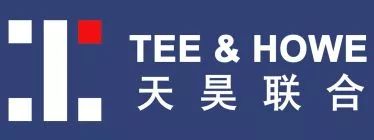- in United States
- with Inhouse Counsel
- with readers working within the Pharmaceuticals & BioTech industries
Thanks to the heads-up from Aaron Wininger ( https://www.linkedin.com/posts/aaron-wininger-135113_chinas-national-peoples-congress-releases-activity-7277810134137892864-A2AP?utm_source=share&utm_medium=member_desktop), on 21 December 2024, the CN National People's Congress NPC announced the draft anti-unfair competition law at below:
http://www.npc.gov.cn/c2/c30834/202412/t20241223_441848.html
I could not find the actual draft from the NPC's website, but it is available at the seemingly non-official link below (why hiding this so secretly?):
Just for background, the anti-unfair competition law in China deals with all unfair competition activities including trade secrets violations, and there is overlap with the area of anti-monopolistic activities.
This draft seems to focus on anti-monopolistic activities, while the only changes related to trade secret is the addition of protection of personal privacy and personal information, together with trade secret in the current law, by the authorities when these are known to the authorities (articles 18 and 37, which are the article numbers in the draft, same as all below).
Below are some important observations in my view:
1) New article 40 would extend the jurisdiction of this law to related activities outside of Mainland China when these activities "disrupts the domestic market competition order or damages the legitimate rights of domestic operators." While this is concerning, my understanding is that the US and Japan (in a cross-broader infringement case) are doing the same (but please correct me if I am wrong), and therefore it may not be likely to ask the NPC to backdown on this.
2) There are several provisions specifically directed to platform operators:
- Article 6 – platform operator shall recite fair competition rules within the platform service agreement and transaction rules.
- Article 14 – platform operator shall not force operators on their platforms to follow their pricing rules to sell good under cost.
- On the other hand, while new article 15 seemingly also targets platform operators, this article changes to recite "large enterprises and other business operators".
My suggestion is to consolidate all of these "platform operators" and "large enterprises and other business operators" in the above articles to "business operators", as the above articles 6 and 14 should not be only applicable to platform operators.
3) Article 7 extends confusion of tradenames to include the following:
- In addition to domain name, website name and web page, also includes social media account name, application name, and icon.
- Addition of unauthorized use of registered trademark and/or unregistered well known trademark as the name of the company. [Note: This was a big problem in Hong Kong, but then went away after Hong Kong changes its company registry rules in 2014, if my memory is right. I am not sure why it takes so long for China to have similar change.]
- Addition of unauthorized use of other's influential product names or company names (including abbreviation, font size, etc.) as its search keywords.
These are good changes in my view.
4) Extension to cover provision of convenience to others to carry out confusion behaviors (article 7 and 22). The wordings in article 7 could create problems to compliance, as unlike article 22, article 7 does not recite "knowingly". I suggest adding "knowingly" to article 7 regarding this.
5) It is interesting to note that article 8 specifically adds "The entities and individuals specified in the preceding paragraph shall not accept bribes in trading activities", while the previous paragraphs in the same article 8 govern giving bribes...... It is sometimes essential to state the obvious, and I am good with this change.
6) Article 11 adds the prohibition "After the start of the prize-winning sales activity, the prize redemption conditions and prize amount are changed without justifiable reasons." I believe this is a good change, which seemingly covers something that happened a lot in China.
7) Article 13 has the following changes in actions that shall be forbidden:
- Changing "technical means" to "data, algorithms, technology, platform rules, and the like". While there is an open-ended "and the like" at the end, I suggest changing this to "technical and/or non-technical means" to provide more flexibility and scope, while seemingly is the intention.
- Adding "By fraud, coercion, electronic intrusion or other improper means, obtaining and using data legally owned by other operators". First, I am sure this would cover Chinese authorities. Secondly, does it mean that it is fine to do the above to obtain and use data illegally owned by other operators? If so, who is going to determine whether the data is illegally owned by the affected operator? As such, I suggest deleting the word "legally".
- Adding "Abusing platform rules and conducting malicious transactions". This may need further elaboration, as I do not know the exact meaning of these.
8) Punishment on revocation of business license have the following inconsistences:
- In article 22, such revocation is in parallel with fines.
- In articles 23 and 24, it is not clear whether such revocation are in parallel with fines. I suggest revising articles 23 and 24 to parallel the wording in article 22.
9) Changes with respect to fine are as below:
- The maximum fine against bribery in article 23 is reduced, and fine mechanism becomes complex. I do not understand this at all, and suggest that the maximum fine should be increased, and return to the original simple mechanism.
- The minimum punishment amount is removed in article 24 (for non-serious cases), but increases in articles 25, 27 and 28. I suggest adding an increased minimum punishment amount back to article 24, say RMB300,000, for consistency.
- The maximum fines are increased in articles 27 and 28, but not in articles 24 and 25. Again I suggest increasing the maximum fines in articles 24 and 25 for consistency, otherwise this may send a message that the actions covered by articles 24 and 25 are not as important as those in articles 27 and 28. Or may be this is the actual intention?
10) Article 24 now additionally includes "fake review" as a means of false advertisement. I welcome this change, which I have an article on related "transaction farming" ( https://www.linkedin.com/pulse/transaction-farming-also-counted-damages-china-toby-mak/?trackingId=0%2FDKLUuNS%2By77rgq1OwYbQ%3D%3D).
As always, all comments from fellow members are welcomed.
The content of this article is intended to provide a general guide to the subject matter. Specialist advice should be sought about your specific circumstances.


